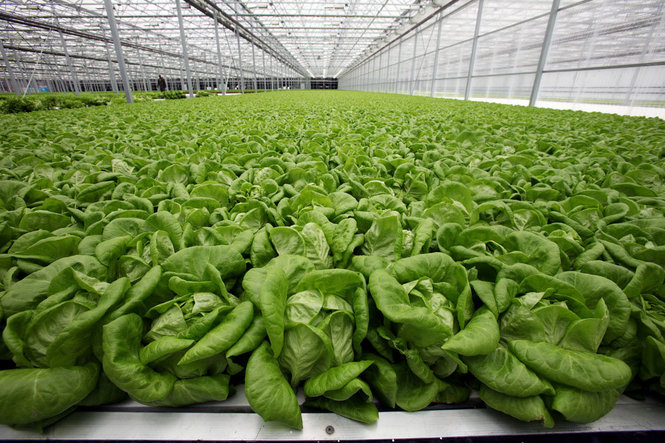Despite its great wealth, the United States today faces enormous difficulties. Amidst the economic pain and insecurity and the looming climate catastrophe, there are no easily discernible political answers that even begin to offer strategic handholds on a truly democratic future. We face systemic problems, not simply political or economic problems.
The wages of most American workers have been stagnant for over three decades. Inequalities of income and wealth continue to spiral; the richest 400 individuals own more wealth than the bottom 180 million Americans taken together. Incarceration rates have reached the highest levels in the developed world. Civil liberties have been significantly eroded. Environmental despoliation continues unabated.
The question is: How do we deal with a systemic crisis—something built into the way the political-economic world works—rather than a simple political crisis or economic crisis? To do so will require changing the way things are rigged deeper down in the machinery of institutions, corporations, bureaucracy, and all the other elements of “the system” that produce and reproduce the outcomes we experience.
Since political power in large part follows economic power, are there any ways to begin to conceive of a different system that might truly democratize the ownership of wealth in a manner that points in the direction of a democratic system in general?
There may be. Just beneath the surface of traditional media attention, something important has been gathering force as the economy has deteriorated, effectively forcing people to take things into their own hands, community by community. An emerging “New Economy” is beginning to bring together organizations, projects, activists, theorists and citizens committed to rebuilding the American political-economic system from the ground up. Thousands of real-world projects ranging from ecologically and socially sustainable local businesses to worker-owned cooperatives to larger-scale publicly-owned utilities and banks are underway across the country. A number are self-consciously designed to act as working prototypes in the state and local “laboratories of democracy” that can be applied at regional and national scale when the right political moment occurs.
| Are there any ways to begin to conceive of a different system that might truly democratize the ownership of wealth in a manner that points in the direction of a democratic system in general? |
As a result of work done over the last several years, for example, in Cleveland, Ohio, a group of sophisticated environmentally sustainable worker-owned companies has emerged. They are linked together with a community-building nonprofit corporation and a revolving fund designed to help create more linked cooperative businesses as time goes on. A large-scale industrial laundry operates out of a LEED Gold-certified building and uses approximately one-third the water commercial laundries use. Another worker-owned company is poised to install twice as much solar capacity than currently exists in the entire state of Ohio. And Green City Growers Cooperative—a three-and-a-quarter acre hydroponic greenhouse—produces some 3 million heads of lettuce a year. An important element of the new design involves arranging for big hospitals and universities in the area to purchase part of their needs from the worker-owned companies. The goal is not simply worker ownership, but worker ownership linked to a community-building strategy.
The “New Economy Movement” is also serious about building on earlier models. More than 130 million Americans already belong to one or another form of cooperative. Similarly, there are some 2,000 municipally owned utilities (25 percent of American electricity is already provided by co-ops and public utilities). Upwards of 10 million Americans work at some 11,000 employee-owned firms. More than 200 communities operate or are establishing community land trusts. And hundreds of “social enterprises” use profits for social or community-serving goals. This is to say nothing of the roughly 4,500 Community Development Corporations and 1.5 million non-profit organizations that operate in every state in the nation.
These various strategies also begin to offer a possible long-term path in the direction of systemic change that differs from traditional reforms which assume that the ownership of wealth will remain largely in corporate hands, and relies on policy to regulate and alter the impact of corporate behavior. It is different from revolution. “Evolutionary reconstruction” (as I have termed change of this kind) changes ownership and thereby power, but in an evolving, democratizing, institution-building way.
It is possible that the deteriorating social, economic and ecological trends will continue; on the other hand, painful conditions like those of the last several decades have been the conditions that have given rise to the many, many evolving “New Economy” efforts. As conditions worsen and as the lessons of new advances are passed along, it is likely that the pace of change will increase—and potentially intensify to the point where new local and regional political energies come together, laying foundations larger changes at the national level, and for what might one day become a new decentralized and democratized system different in structure from either corporate capitalism or state socialism.
The “New Economy movement” has just that goal in mind—and though the odds may be long, like many historic movements before it both in this nation and elsewhere, the new energies being released by the movement are far more impressive than is commonly realized.
Gar Alperovitz, author of the just-published What Then Must We Do? Straight Talk on the Next American Revolution, is Lionel R. Bauman Professor of Political Economy at the University of Maryland and co-founder of the Democracy Collaborative.





0 Comments